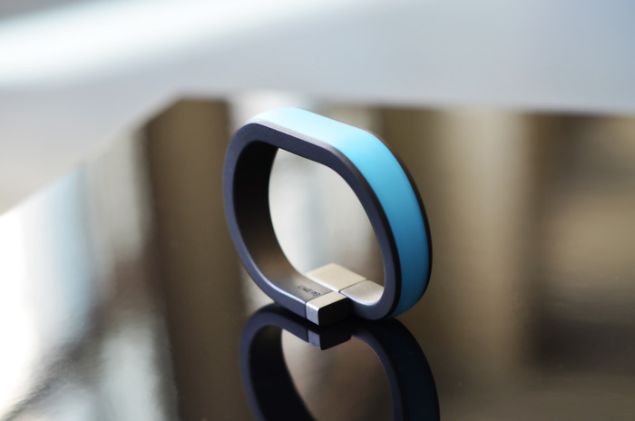- Home
- Wearables
- Wearables News
- Organic Electronics Could Lead to Cheap, Wearable Sensors
Organic Electronics Could Lead to Cheap, Wearable Sensors

Researchers are developing new cheap, flexible sensors that could be worn easily to accurately measure blood-oxygen levels.
"There are various pulse oximeters already on the market that measure pulse rate and blood-oxygen saturation levels, but those devices use rigid conventional electronics, and they are usually fixed to the fingers or earlobe," said Ana Arias, from the University of California-Berkeley.
By switching from silicon to an organic, or carbon-based design, the researchers were able to create a device that could ultimately be thin, cheap and flexible enough to be slapped on like a Band-Aid.
The engineers put the new prototype up against a conventional pulse oximeter and found that the pulse and oxygen readings were just as accurate.
A conventional pulse oximeter typically uses light-emitting diodes (LEDs) to send red and infrared light through a fingertip or earlobe. Sensors detect how much light makes it through to the other side.
Bright, oxygen-rich blood absorbs more infrared light, while the darker hues of oxygen-poor blood absorb more red light. The ratio of the two wavelengths shows how much oxygen is in the blood.
For the organic sensors, Arias and her team of graduate students - Claire Lochner, Yasser Khan and Adrien Pierre - used red and green light, which yield comparable differences to red and infrared when it comes to distinguishing high and low levels of oxygen in the blood.
Using a solution-based processing system, the researchers deposited the green and red organic LEDs and the translucent light detectors onto a flexible piece of plastic. By detecting the pattern of fresh arterial blood flow, the device can calculate a pulse.
"We showed that if you take measurements with different wavelengths, it works, and if you use unconventional semiconductors, it works," said Arias.
"Because organic electronics are flexible, they can easily conform to the body," said Arias.
Arias added that because the components of conventional oximeters are relatively expensive, health-care providers will choose to disinfect them if they become contaminated.
In contrast, "organic electronics are cheap enough that they are disposable like a Band-Aid after use," she said.
The research was published in the journal Nature Communications.
Get your daily dose of tech news, reviews, and insights, in under 80 characters on Gadgets 360 Turbo. Connect with fellow tech lovers on our Forum. Follow us on X, Facebook, WhatsApp, Threads and Google News for instant updates. Catch all the action on our YouTube channel.
Related Stories
- Samsung Galaxy Unpacked 2026
- iPhone 17 Pro Max
- ChatGPT
- iOS 26
- Laptop Under 50000
- Smartwatch Under 10000
- Apple Vision Pro
- Oneplus 12
- OnePlus Nord CE 3 Lite 5G
- iPhone 13
- Xiaomi 14 Pro
- Oppo Find N3
- Tecno Spark Go (2023)
- Realme V30
- Best Phones Under 25000
- Samsung Galaxy S24 Series
- Cryptocurrency
- iQoo 12
- Samsung Galaxy S24 Ultra
- Giottus
- Samsung Galaxy Z Flip 5
- Apple 'Scary Fast'
- Housefull 5
- GoPro Hero 12 Black Review
- Invincible Season 2
- JioGlass
- HD Ready TV
- Latest Mobile Phones
- Compare Phones
- Tecno Pova Curve 2 5G
- Lava Yuva Star 3
- Honor X6d
- OPPO K14x 5G
- Samsung Galaxy F70e 5G
- iQOO 15 Ultra
- OPPO A6v 5G
- OPPO A6i+ 5G
- Asus Vivobook 16 (M1605NAQ)
- Asus Vivobook 15 (2026)
- Brave Ark 2-in-1
- Black Shark Gaming Tablet
- boAt Chrome Iris
- HMD Watch P1
- Haier H5E Series
- Acerpure Nitro Z Series 100-inch QLED TV
- Asus ROG Ally
- Nintendo Switch Lite
- Haier 1.6 Ton 5 Star Inverter Split AC (HSU19G-MZAID5BN-INV)
- Haier 1.6 Ton 5 Star Inverter Split AC (HSU19G-MZAIM5BN-INV)







![[Partner Content] OPPO Reno15 Series: AI Portrait Camera, Popout and First Compact Reno](https://www.gadgets360.com/static/mobile/images/spacer.png)









